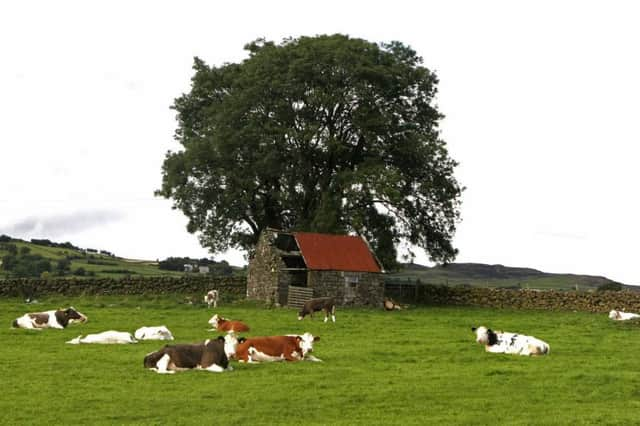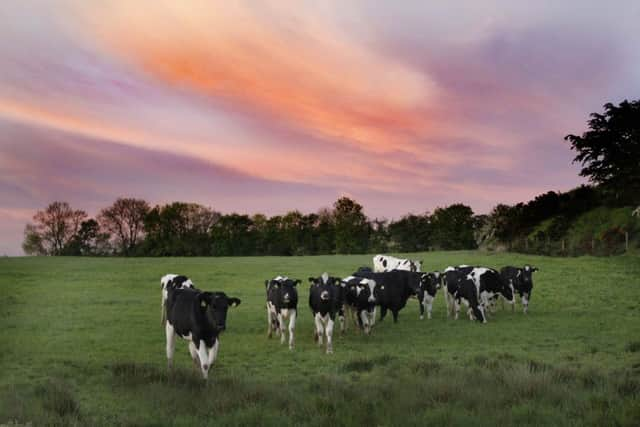'˜Excessive emissions of ammonia are having a detrimental effect'


With so much of our land area used for agriculture, it is our farmers who are the primary custodians of much of our landscape and associated environment.
This environment provides multiple, often less recognised benefits, to society. As well as the food we eat, our environment also ensures we have clean air, clean water and protection from flooding in addition to the health benefits such as the opportunity unwind during a walk in the great outdoors after a hard week.
Advertisement
Advertisement
In the Department for Agriculture, Environment and Rural Affairs (DAERA) our vision is of a thriving and sustainable economy, environment and rural community. We work to develop sustainable agriculture, fisheries and industrial sectors and to protect and improve the environment. However, there are occasions when delivering against both, simultaneously, can be a challenge. Nonetheless, this is something that the Department is determined that it can, and will, do.


A current example of such a challenge has arisen in relation to ammonia emissions from agriculture. This has become a topical issue recently, as applications are considered for planning permission and environmental permits from the agriculture sector as it seeks to modernise. Some of these applications are in turn linked to the Farm Business Improvement Scheme.
Ammonia is a pungent gas produced in relatively large quantities from animal waste, concentrations of which are greatest in areas with the most livestock farming. When released into the atmosphere, it increases the levels of air pollutants that are harmful to human health.
Excessive emissions of ammonia from agriculture are having a detrimental effect on biodiversity and sensitive habitats in Northern Ireland, including the majority of our valuable designated nature conservation sites – indeed, some of our most valuable sites have already been damaged in this way.
Advertisement
Advertisement
This has implications for agricultural development, nature conservation, human health, and the extent to which we are meeting our environmental obligations under legislation. As it stands, the European Commission already has concerns with our perceived management of designated sites.


Agriculture is the dominant source of ammonia emissions, making up 93% of Northern Ireland’s current emission levels. Northern Ireland currently contributes 12% of the total UK levels, reflecting the scale and nature of the agricultural sector here relative to the rest of the UK.
While the intensive pig and poultry sector have had to address ammonia emissions for a number of years (as a result of specific EU legislation on industrial emissions), cattle manure management and the application of manure to soils account for 73% of the emissions from the agriculture sector.
In line with its obligations under environmental and planning legislation, the Department is required to consider the potential environmental impact of development proposals. In cases where an adverse environmental impact is likely, in particular, from ammonia emissions and associated nitrogen deposition, we will work with applicants to gather more information on the proposal and to determine whether there are mitigations options available which could address the potential adverse environmental impact.
Advertisement
Advertisement
In a small number of cases, permission may not be granted or, for planning permission, recommended. The Department is, however, committed to helping farmers and producers to maximise their opportunities to reduce ammonia emissions and avoid any adverse impact.
Ammonia has become a significant issue and we recognise the need for a long term solution which achieves both a sustainable agriculture sector and a protected and improved environment.
With this in mind an Expert Working Group, commissioned by the previous DAERA Minister, is currently deliberating on how ammonia emissions from local agriculture should be addressed. It will report to the Department this autumn. This will assist us to work with the industry in developing and implementing a road map for reducing background levels of ammonia whilst also meeting Department’s desire to modernise and grow the agriculture sector.
In doing this I believe that our wonderful landscape, natural assets and agricultural sector can thrive together for years to come.